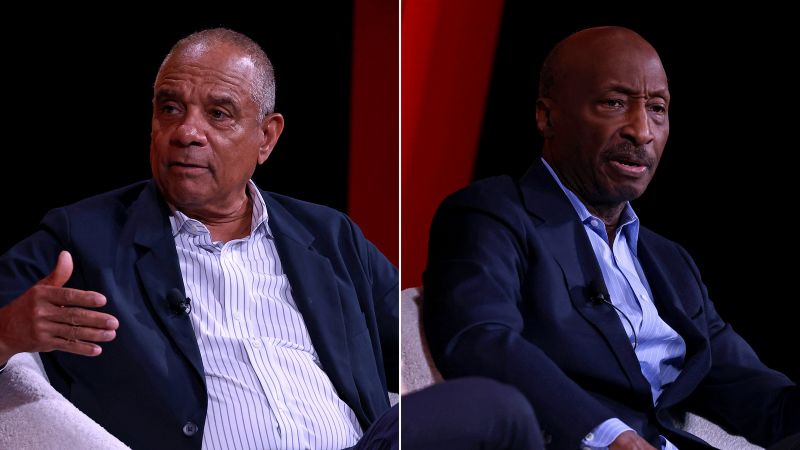Ken Frazier and Ken Chenault, two pioneering business leaders who broke barriers as Black CEOs of Fortune 500 companies, have emphasized the importance of diversity, equity, and inclusion (DEI) efforts in the corporate world. They argue that abandoning these strategies will limit opportunities for individuals who face disadvantages due to their skin color, upbringing, education, and other factors beyond their control. As the co-founders of OneTen, an organization dedicated to creating one million careers for individuals without a four-year college degree, Frazier and Chenault stress the need for companies to actively develop talent and provide opportunities for those who have faced discrimination.
DEI initiatives have faced backlash from right-wing political and legal attacks, leading some companies to retreat from their programs. Despite the criticism, Frazier and Chenault believe that corporate diversity strategies are necessary in a country where bias exists and not everyone starts from an equal position. Research has shown that DEI programs can benefit businesses by boosting profits, reducing attrition rates, and increasing employee motivation. Companies with DEI teams tend to have more diverse workforces, which can lead to better decision-making and innovation.
Frazier’s own success story at Merck highlights the importance of actively developing strategies to advance hidden talent within organizations. Mentored by then-CEO Roy Vagelos, Frazier transitioned from a legal role to the business side of the company, paving the way for his leadership position. Both Frazier and Chenault challenge the notion that promotions based on past criteria considered to be “merit” were truly fair, arguing that those standards often favored individuals based on race or connections. They acknowledge that while not every DEI program is perfect, opponents often use selective examples to oppose DEI efforts as a whole.
The rise of corporate DEI initiatives gained momentum following the wave of protests for racial justice in 2020, spurred by the murder of George Floyd. Companies invested billions of dollars in DEI-related efforts, including employee resource groups, to address systemic inequities. However, recent legal and political pressures have led some companies to scale back their diversity programs, with conservative groups targeting these initiatives through lawsuits and public pressure campaigns. Frazier and Chenault note a divide between companies that embraced DEI trends in response to external pressure versus those that have fully integrated these strategies into their core business practices.
The Supreme Court ruling in 2023 that bans colleges and universities from considering race in admissions marked a significant setback for efforts to address racial inequities in education. Conservative leaders and activists continue to target companies with diversity programs, using social media and legal avenues to put pressure on brands to roll back their inclusivity efforts. Frazier and Chenault caution that the current political climate poses challenges for companies committed to promoting diversity and may discourage others from advancing DEI initiatives. They emphasize the importance of embedding DEI into the fabric of business operations to ensure long-term sustainability and effectiveness.













